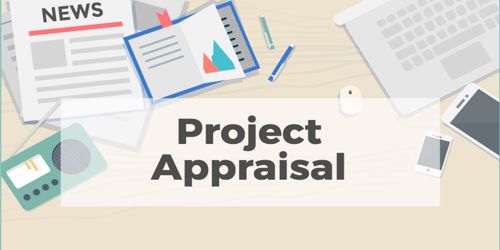Course Details
Your Growth, Our Mission

Course Description
The Training Course Will Highlight ?
This 5-day training program will enable delegates to perform detailed and comprehensive appraisals of capital projects, protect the investment of the organization, understand and apply the principles and methods of engineering economics, financial management, cash flow analysis and risk management.
Training Objective
By attending this course, delegates will learn how to:
- Apply discounted cash flow analysis to project evaluations
- Perform present and annual value calculations (NPV and EAV)
- Determine the project’s internal rate of return (IRR) as the basis for establishing the risk exposure to the organization
- Evaluate and rank various project alternatives using tools such as NPV, IRR, BCR, EAV/C
- Incorporate risk analysis into the cash flow predictions during project feasibility studies
- Consistently manage project cash flows and predict outcomes and problems that require early interventions
Target Audience
The Project Appraisal: Financial & Economic Factors training course is designed for:
- program and project managers
- project leaders & project engineers
- cost engineers, and
- other senior project control and business services professionals who are responsible for or involved in securing project financing and managing cash flow on projects.
Training Methods
Daily Agenda
Module 1 -Fundamental Principles of Economic Appraisal
Description:
Section One discusses the fundamentals of project finance and examines the impact of the time value of money on project feasibility.
Key topics:
- Principles of the time value of money and the discount rate
- Compound Interest
- The time value of money
- Future value of money
- Present value of money
- Compounding/discounting table
- Project Evaluation
- Fundamental criteria for appraisal
- Mixed stream cash flow
- Expanded mixed stream cash flow
- Weaknesses of payback period
- Discounted cash flow projection
- The timing of cash flows
- Projects with different time horizons
- Equivalent annual cost/worth method (EAC)
Module 2 - Rate of Return (IRR), Benefit-Cost Ratio (BCR) and Cost of Capital
Description:
Section Two describes the importance of the Internal Rate of Return as an indicator of the amount of financial risk that can be tolerated by the project. It also explains the principles of calculating the cost of capital for projects.
Key topics:
- Determining the Internal Rate of Return (IRR)
- IRR for a single project
- IRR for a single project using present worth
- IRR for a single project using annual worth
- Incremental analysis
- Mutually exclusive projects
- Using IRR to analyze options with different lives
- Costs, benefits, and non-benefits
- Estimating the benefit-cost ratio for a single project
- Estimating the cost of capital for a project
- The cost of debt capital
- The cost of equity capital
- Weighted Average Cost of Capital (WACC)
- Financial gearing (Structuring)
Module 3 -Financial Project Risk Analysis and Expected Value
Description:
Section Three deals with the process of risk analysis as applied to project cash flows, and explains the use of Expected Value as a means to quantify risk on projects in financial terms. Three-point scenario analyses are used to predict the most probable financial outcome of the project.
Key topics:
- Overview of the Risk Management Process
- Detailed Risk Quantification and Prioritization
- Probabilistic Methods
- Expected Monetary Value Concepts
- Risk Quantification and Expected Monetary Value
- Scenario Planning
- Best case scenario
- Base case scenario
- Worst case scenario
- Decisions Under Conditions of Uncertainty
- Multiple Option Decisions
Module 4 -Financial Scenario Planning - Case Study
Description:
Section Four provides advanced applications of Risk Scenario Planning to project cash flows based on three-point scenario analyses and risk impact projections.
Key topics:
- Cash flow projections – Tunnel Case Study
- Base Case Scenario
- Best Case Scenario
- Worst Case Scenario
- Risk profile EMV calculation before mitigation
- Identification of risk triggers & probability
- Plotting the event probability
- Identification of risk receptors & impact
- Plotting the financial impact
- Combined EMV risk profile before mitigation
- Developing probability mitigation strategies
- Developing impact mitigation strategies
- Re-plotting the projected risk profile after mitigation
- Examining the J-curve to derive the most economic mitigation point
Module 5 - Financial Modeling and Project Evaluation
Description:
Section Five deals with the essential elements of a detailed cash flow analysis, with specific attention to the various categories of cost, inflation, taxation, depreciation and interest to determine the financial feasibility of the investment over the life of the project.
Key topics:
- Preparing cash flow projections
- Incremental costs and benefits
- Working capital requirements and operating costs
- Forecasting Cash Flows
- How to deal with inflation
- How to deal with uncertainty and risk
- Risk premiums
- Pessimistic and optimistic forecasts
- Opportunity costs and sunk costs
- Determining the economic life of a project
- Quantifying the effects of inflation
- Effects of inflation on working capital
- Effects of inflation on taxation
- Effects of inflation on cost of capital
- Variable inflation rates over the life of the project
- Relevant cash flows over differing time horizons
- Depreciation
- Straight-Line method
- Declining Balance method
- Interest, insurance and tax costs
- Taxation
- Corporation tax rates
- Taxable profit
- Capital allowances
- Incorporating tax in cash flow models
Accreditation
BTS attendance certificate will be issued to all attendees completing minimum of 75% of the total course duration.
Quick Enquiry
Request Info
Related Courses
Your Growth, Our Mission

